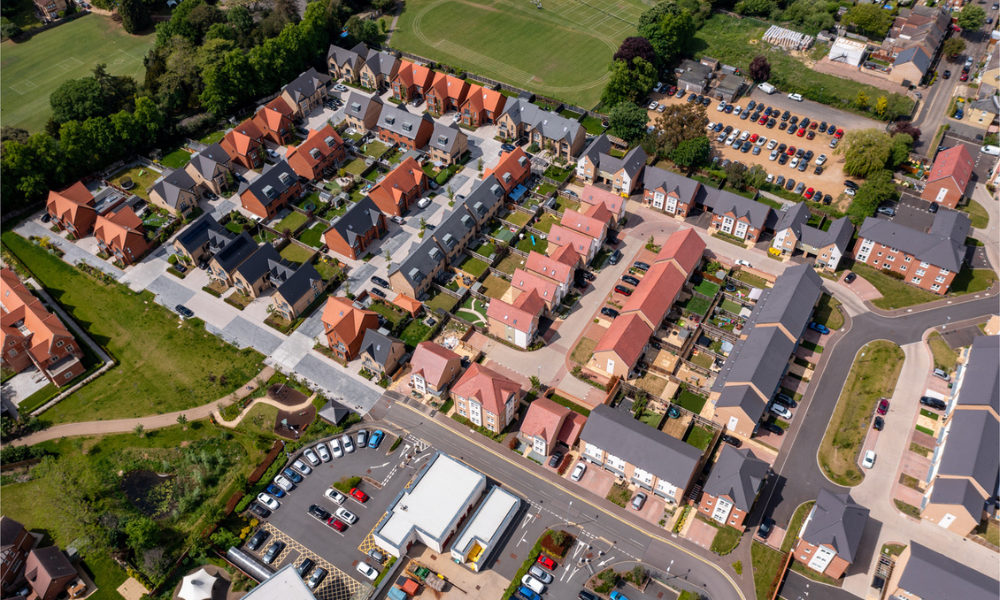Economist, however, thinks any uplift in activity this year is likely to be limited

As the trend of decreasing mortgage rates continued, both near term and year ahead sales expectations picked up in December, according to the Royal Institution of Chartered Surveyors (RICS).
Results of the latest RICS UK Residential Market Survey a positive shift in market activity, signalling improvements over the previous month.
The buyer enquiries indicator in December recorded a reading of -3%, an improvement from November’s -13%, moving towards a neutral reading. This marks the fourth consecutive month of reduced negative buyer enquiry activity, entering neutral territory for the first time since April 2022. Similarly, the newly agreed sales figure of -6% is the least negative since March 2022.
Expectations for near-term sales in December rose to +12%, with respondents anticipating a solid recovery in residential sales volumes in 2024. The net balance increased from +24% to +34%, while the average time to complete a sale decreased to 18 weeks, down from 20 weeks in September 2023.
The headline house price gauge posted a reading of -30% in December, indicating diminishing downward pressure on prices. This is the least negative reading since November 2022, a positive sign for the market, RICS noted.
Near-term price expectations, while marginally negative at -13%, suggest an anticipated easing in the pace of price declines compared to November’s -23% result. Respondents foresee house prices stabilising at the national level, posting a net balance of zero in December, an improvement from the -10% recorded in November.
House price expectations vary across the UK, with respondents from Northern Ireland, the North West of England, and Scotland anticipating higher prices on a 12-month view.
“With 2023 proving to be a particularly challenging year for the UK housing market, it appears recent weeks have seen a little bit of respite emerge,” Tarrant Parsons, RICS senior economist, remarked. “Supported by an easing in mortgage interest rates of late, buyer demand has now stabilised, and this is expected to translate into a slight recovery in residential sales volumes over the coming months.
“Nevertheless, the lending climate is set to remain restrictive compared to much of the post global financial crisis era next year, meaning any uplift in activity is likely to be limited for the time being.”
Rents are likely to continue rising
In the lettings market, RICS reported that tenant demand increased in December, posting a net balance of +17% of survey participants.
Despite a noticeable dip in demand growth in recent months, a continuous decline in landlord instructions over the past year has resulted in a scarcity of properties available for rent, leading to rising rental prices.
Consequently, +50% of respondents expect rents to continue rising in the near term. Longer-term projections indicate a nearly 4% increase over the year ahead, with rental growth averaging 5% per annum over the next five years.
“The gradual improvement in the market, falling mortgage rates, and a rise in tenant demand will provide landlords with confidence in 2024,” Emma Cox, managing director of real estate at Shawbrook, commented.
“Despite tough economic conditions and uncertainty over the past 12 months, landlords have continued to add to their portfolios to cater for the needs of the rental market, which continues to grapple with a lack of suitable and available properties.
“However, landlords may need to act quickly to close transactions and secure new properties. A surprise increase in inflation may prevent the anticipated interest rate cuts which, in turn, could halt the lowering of mortgage rates. Now could be the time for landlords to partner with a specialist lender to finalise deals and future-proof strategies against further economic challenges.”
Any thoughts on the findings of the latest RICS Residential Market Survey? Let us know by leaving a comment in the discussion box at the bottom of the page.



